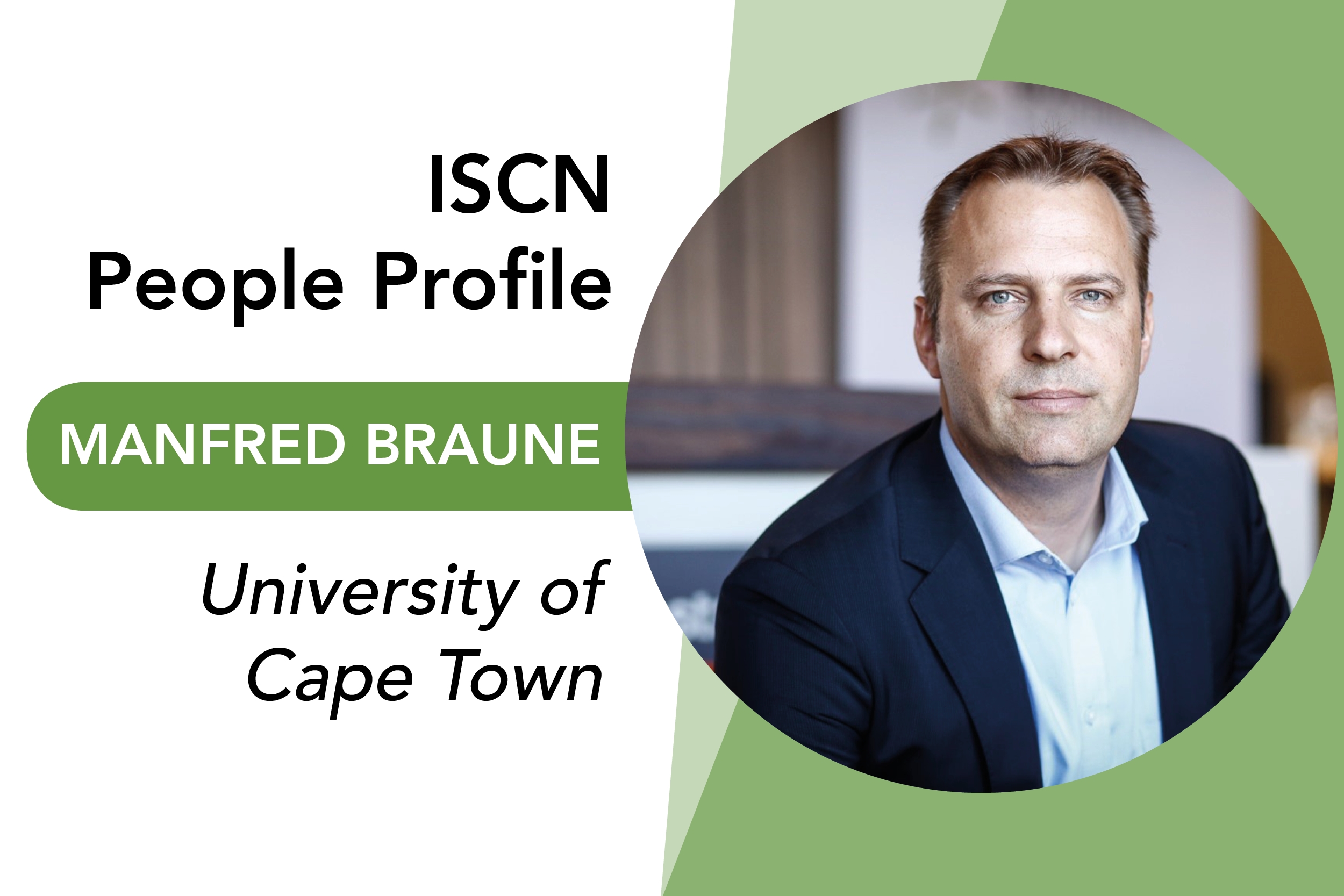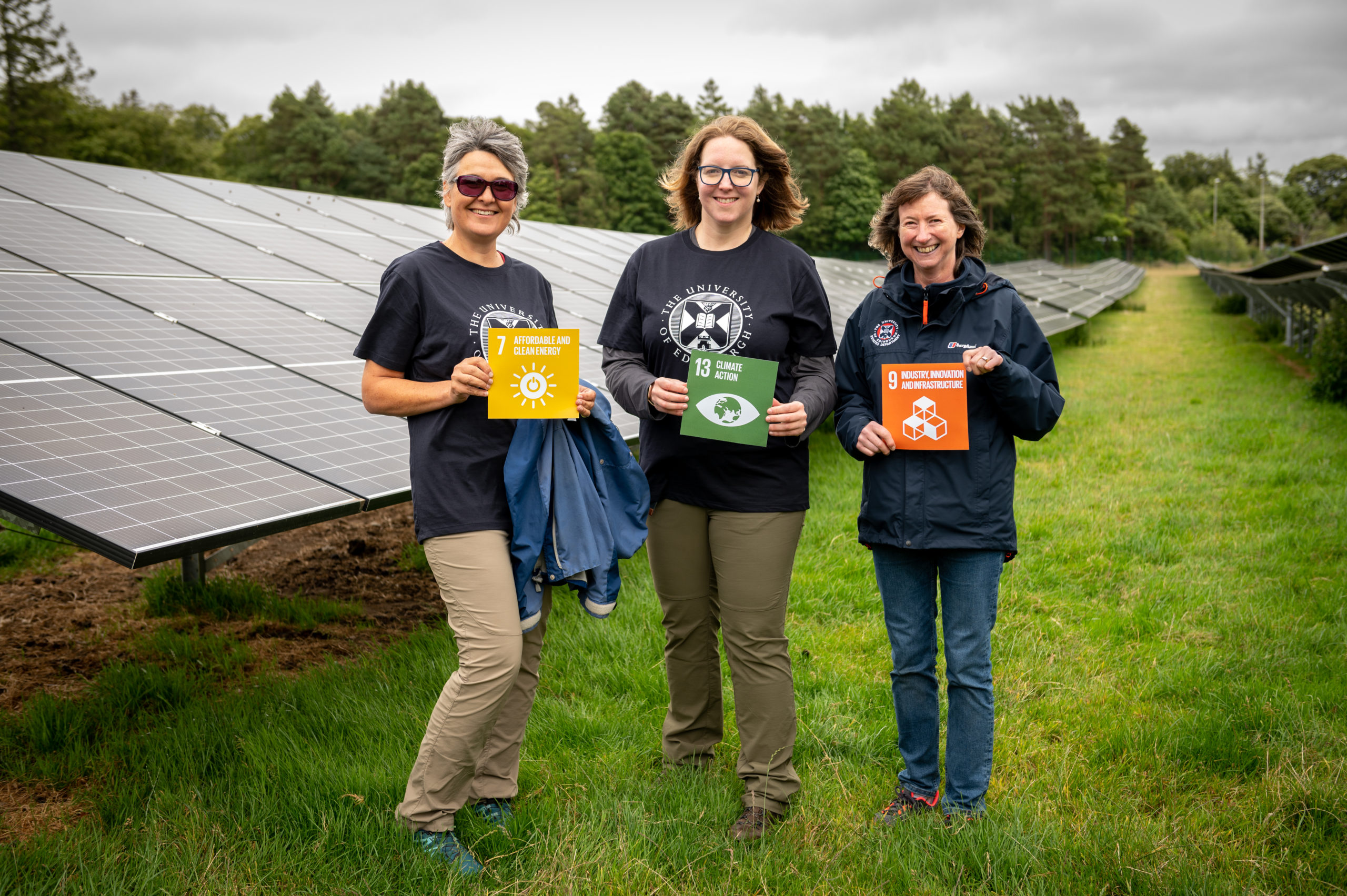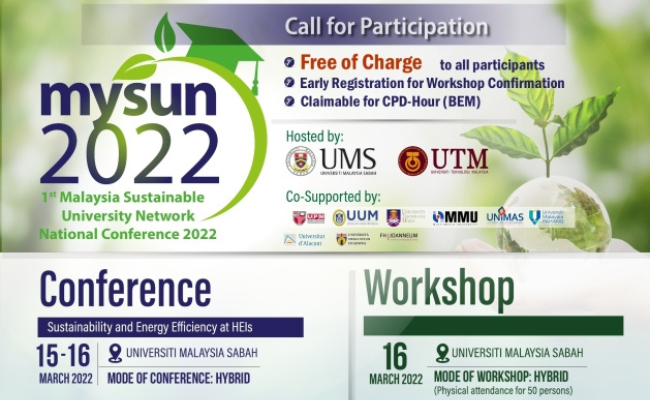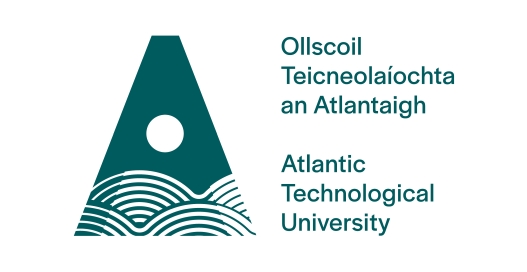Manfred Braune
I love the outdoors, nature and the ocean, where I find myself a lot. This combined with a love for science and creativity led me to a career in engineering and green building design. In my role as Director: Environmental Sustainability I now have the ability to combine my love for the environment, science, creativity and the built environment, where I oversee the delivery of the University of Cape Town's overarching environmental sustainability strategy in all spheres of the university.
Big Idea(s) for Advancing Sustainability in Higher Education
What does the world need most right now?
The world needs action. There is unfortunately still way too much talking going on about solving critical environmental issues and too little action, in all sectors but especially in higher education (at least that is my view of the situation in South Africa). The world doesn't need another committee or conference, but rather the world needs higher education institutions to dedicate some of their time and resources towards tackling critical environmental issues, directly through the campus facilities and the campus community (this is obviously besides the research and teaching that goes on).
The world also needs more sharing to enable some of the action where resources are constrained. Some countries and universities have a lot more than others. Are there ways that universities that are well-resourced can establish green campus partner programmes that can provide support for periods of time? For example, a 6-month programme to share a senior resource at another university to support their green campus initiatives.
Leadership and Inspiration
What does excellent leadership look like to you?
Here are a few of the qualities of excellent leadership that stand out to me:
- Creativity: excellent leaders are creative and don't simply follow somebody else's plan, but they creatively come up with solutions that can tackle the problems that nobody else has been able to overcome.
- Courage: excellent leaders have the courage to go against the grain/mainstream, when everyone says do this, they are prepared to step up and do something different or question the mainstream if they know it will produce a better result.
- Humility: excellent leaders are humble and quick to acknowledge all their team members and the incredible work that everyone does to contribute to a project's success, and respects and welcomes contributions from all kinds of diverse backgrounds.
- Honesty: excellent leaders are honest with themselves and with others about who they are and what they are capable of, including setting boundaries where appropriate and acknowledging failures/mistakes.
Tenacity and Perseverance
What would you tell others who are facing obstacles in their work?
We all typically face some kinds of obstacles in our work and life. I like to face them head on, but with plenty of preparation and planning beforehand, and, if you are a person of faith in God, like me, some prayer. So, collect as much information about the obstacle and gather ideas from others, and come up with a plan to tackle the obstacle. If the plan fails, try again. If the plan fails again, try another plan. Sometimes it helps to step away from the obstacle for a while and come back in future to tackle it, and for some reason then it can be overcome. The key is to not let the obstacle overcome you or to defeat you, but to keep trying or to shift your focus onto something else (if possible) and come back later.
Fun Fact
What is your favourite activity in your spare time?
One of my favourite things to do is surfing or swimming on a wave in the ocean, preferably without a wetsuit, even if it's cold - I love the feeling of gliding over or through beautiful waves with the beach and the mountains next to me, celebrating God's beautiful creation. If I can't do that, then I'll grab my skateboard and try to get as close to that as possible on the pavement! :-) Besides that, I love hanging out with my wife and two daughters, as well as with friends, and playing soccer and field hockey.
2022 Award winners: Edinburgh
This series features our 2022 Award winners. This month, we hear from The University of Edinburgh.
What does it mean to you to win the award?
The International Sustainable Campus Award is a fantastic reflection of the hard work and determination of the University of Edinburgh’s community to address the climate and environmental crisis, one of many complex and urgent challenges that the world faces. Students, staff and alumni, contribute towards the University’s vision to make the world a better place, by continuing to innovative, lead and deliver positive environmental and social change, both locally and globally, through our academic research, education, operations and partnerships.
What’s next for your project: “Whole Institution Approach to Addressing the Climate Crisis”?
The climate and environmental crisis is a key part of the University’s social and civic responsibility commitment. We are widening our climate focus to include more action on biodiversity, resources and the circular economy. We will continue to work to embed these issues further in the curriculum and experience of both staff and students, to create the tools, information and skills for the whole University community to innovate for social good, and to examine creative ways to use our buildings, our knowledge and skills, our procurements, our investments, and our reputation to support the Edinburgh city and wider region deliver positive environmental and social change.
We are committed to tackling climate change across all of our activities – this includes how we operate our estate, what we buy and invest in, the teaching and research we undertake and our partnerships. Our commitments include our confirmed plans to sequester more than one million tonnes of carbon dioxide, our continued funding of socially positive investments and the launch of the Edinburgh Earth Initiative in 2021.
Do you have any advice for those working on a “Whole Systems Approach”?
A successful “Whole Systems Approach” requires a clear vision and shared ownership across the University community and partners. A shared purpose will help embed commitments across all of University life as much as possible and deliver multiple benefits for colleagues and the institution. It is important to provide staff and students with the skills and understanding of climate and environmental issues, empowering them to embed these issues in decision making and to take action to deliver positive impact.
For more information on The University of Edinburgh's work see their Social and Civic Responsibility Report 2020-21.
EPFLeaders4impact – A new postdoctoral fellowship programme for the next generation of sustainable science leaders
3rd call for the EPFLeaders4impact programme (deadline 1 March 2023) providing grants to postdoctoral researchers working on innovative solutions to global challenges.
EPFLeaders4impact is a new postdoctoral fellowship programme funding talented researchers who have the ambition to provide innovative solutions to the United Nations Sustainable Development Goals.
EPFLeaders4impact fellows will be able to take steps towards starting a company based on their own research or to have their proposed innovative solution implemented through a technology transfer to an existing company/organisation.
EPFLeaders4impact has received funding from the European Union’s Horizon 2020 research and innovation programme under the Marie Skłodowska-Curie grant agreement No 101034260.
What: 12, 18, 24, or 36-month postdoctoral fellowships. The EPFLeaders4impact fellowship consists of a monthly contribution to the salary of the postdoctoral researcher of EUR 2’740. The remaining part of the salary as well as associated costs are covered by the EPFL hosting laboratory.
Where: research funded by the EPFLeaders4impact programme must be conducted at one of the EPFL campuses in Lausanne, Geneva, Neuchâtel, Valais, or Fribourg.
Eligibility:
- Applicants must be Experienced Researchers (ER); they must hold a doctoral degree or have at least 4 years of full-time equivalent research experience by at the latest the date of recruitment.
- Applicants must fulfil the MSCA transnational mobility rules and must not have resided or carried out their main activity (work, studies, etc.) in Switzerland for more than 12 months in the 3 years immediately before the call deadline.
- Applicants must be able to carry out full-time research during the fellowship period. Parental leave, sick leave, care leave, and military leave are nevertheless permitted.
Application deadline: 1 March 2023 (17:00 CEST)
Start of the fellowship: at the earliest: 1 July 2023, at the latest: 1 November 2023
Current fellows and their projects: here
More details: please, visit the EPFLeaders4impact website
Contact: [email protected]
2nd Malaysia Sustainable University Network National Conference
The MYSUN project and network are happy to announce the 2nd Malaysia Sustainable University Network National Conference (#mysun2022) and accompanying workshop, on 6th – 7th December, 2022. The conference and workshop are hosted by Universiti Putra Malaysia (UPM), together with other MySUN Partners in Malaysia and EU.
This conference aims to attract researchers, scholars, engineers, technologists, and students from universities and industries throughout the world, especially in any related to engineering, social sciences, climate and disaster resilience related to sustainability pillars. The conference would provide opportunities for delegates to exchange ideas and research experiences and to establish research collaborations with global partners.
This Conference and Workshop is FREE of CHARGE (FoC) for all categories, thus allow early registration throughout the opportunity networking among MySUN partners and other stakeholders in Malaysia.
All abstract submissions will be blind reviewed by the Technical Review Committee based on technical quality, relevance to conference topics of interest, originality, significance and clarity. The accepted abstract will be published in Conference Proceedings with the e-ISSN registration.
Topics of interest for abstract submission include, but are not limited to:
- Net-Zero
- Energy Management
- Waste Management
- Cooling Technology
- Alternative Energy
- Energy Communities
- Transportation
- Environmental Monitoring
- Campus Management and Community Engagement
- Campus Governance
- Education For Sustainability
For more information, including important dates and contact details:
Job ad: Research Assistant - ATU Galway-Mayo Centre for Sustainability
Closing Date: 12 noon on Friday, 18 November 2022.
Location: ATU Galway-Mayo Galway City (Wellpark Road) and Connemara campuses.
Reporting To: Dr Mark Kelly, Head of ATU Galway-Mayo Centre for Sustainability
Duration: The position will be for a period of 12 months. The successful candidate would be expected to start as soon as possible after receiving an offer.
Project Title: The Design and Development of a Circular Campus Framework for the Atlantic Technological University (ATU).
Job Description:
Context
The ATU Galway-Mayo Centre for Sustainability aims to embed sustainability and the Sustainable Development Goals (SDGs) as core guiding principles in all activities in ATU with a particular focus on curriculum, campus, community, collaborative research, and culture. This project will specifically focus on the design and development of a circular campus framework for the ATU School of Design and Creative Arts based at the ATU Galway City (Wellpark Road) and Connemara campuses. This will consist of the following elements:
- Horizon scan and systematic literature review of circular economy implementation and integration into organizations with a narrowing of the focus to best practice examples in public sector organizations and higher education institutions internationally.
- Review and analysis of the current situation in relation to the Irish higher education sector’s commitment to climate action and
- Questionnaire survey and interviews with staff and students to identify circular economy awareness, knowledge, and
- Explore and identify synergies with the National Green Campus Programme, the Sustainability Tracking, Assessment & Rating System™ (STARS) process, and the development of an ATU Sustainability and Climate Action
- Explore and identify opportunities to embed circular economy principles into a living lab concept to frame campus operations and management e.g., new builds, refurbishment, and maintenance works in collaboration with the Build360 research group in the ATU Galway-Mayo Department of Building and Civil Engineering and ATU Galway-Mayo Building and Estates Office; and a Materials Flow Analysis to benchmark inflows, stock, and
- Explore and identify opportunities to embed circular economy principles into the curriculum e.g., content, assessment, pedagogy
- Explore and identify opportunities to utilize the circular economy as a means of community engagement i.e., with social enterprises, businesses, schools/further education/lifelong learning etc, within a circular neighbourhood/community
- Identify, prepare, and submit research funding applications based around the circular campus concept to build institutional capacity in this
The successful candidate will report to the Head of ATU Galway-Mayo Centre for Sustainability, Dr. Mark Kelly, the Head of School of Design and Creative Arts, Dr. Patrick Tobin, and Dr. Dermot O’Donovan, the Head of Department of Creative Education.
Requirements:
Minimum:
- Fluency in English and excellent written and oral presentation
- The post will require a researcher to have a minimum of a primary honour’s degree in a relevant
Desirable:
- Postgraduate degree in a relevant
- Relevant industrial and/or research
- Demonstrate a good knowledge and understanding of the circular economy and the higher education sector sustainability
- Strong level of technical aptitude and problem-solving
- The potential candidate should be self-motivated with an aptitude for creative problem-solving, along with the flexibility to adapt to new tools and
- Excellent interpersonal, communication and organizational
- Ability to present results/methods in written and oral form to internal and external
- Willingness and ability to work in a fast-paced and dynamic
- Able to work independently as a self-starter and as part of the wider project
- Capable of directing and interfacing with the work of collaborators (including at remote locations).
- Ability to build and document knowledge and share information about latest methods, trends, and developments in the relevant field of
- Ability to manage development aspects of the project according to aligned project briefs.
- Proficient in documentation, presentation, and project management
- Proficient in the preparation of research funding
Salary Scale: Research Assistant Point 1 on the IUA Scale €27,109.00 per annum plus 20% pension contribution.
Hours of Work: 39 Hours per week
Annual Leave: 22 days annual leave per annum
Further information on the position may be obtained from Dr Mark Kelly ([email protected]).
Press Release: Research and university communities united to tackle global climate challenges
JOINT PRESS RELEASE
Brussels, 3 November 2022
Ahead of COP27, research and university organisations join forces to renew the call for collective, common global efforts for climate action, launched last year.
The European association of leading universities of science and technology (CESAER), the European University Association (EUA), the International Sustainable Campus Network (ISCN), Science Europe, the Network of Universities in Capitals (UNICA), the University of Strathclyde in Glasgow the city hosting COP26, gathered to mobilise their expertise and call for cooperation in urgent climate actions.
Today’s online symposium on “Interdisciplinarity for the Net-Zero Transition”, a lead-up event to COP27, was an opportunity for the six organisations to present their commitment for climate action, share good practice, concrete examples, and call for the mobilisation of research and higher education communities. In 2021, CESAER, ISCN, Science Europe and the University of Strathclyde, in the city of Glasgow which hosted COP26, launched a Call to Action for research performing and funding organisations and universities regarding the Net-Zero Transition. This year, EUA and UNICA joined the four partners in co-organising the COP27 lead-up symposium focused on “interdisciplinarity”.
Universities and research performing and funding organisations are key contributors to the global Net-Zero Transition effort in reducing their energy consumption and, most importantly, providing new insights into challenges, as well as solutions, including ‘green’ technologies and societal innovations. The climate crisis has multiple causes but only collective efforts and action, embedding whole-systems approaches will address and mitigate it effectively. Innovative and scientifically rigorous methods for estimating and mitigating increases in greenhouse gas and harmful emissions are needed to enable a more effective, robust and concentrated effort with resources being enabled for long-term investments to expedite the Net-Zero Transition.
“With our commitment for the Net-Zero Transition, together with partners from the research and university systems, we want to mobilise policymakers and societal stakeholders in a collective effort for the most pressing challenge of our time: climate change,” declared Professor Rik Van de Walle, President of CESAER.
“European universities are committed to responding to societal concerns about the climate crisis, including by tailoring our educational offerings to ensure maximum impact through our graduates. The efforts and reforms we are seeing on the part of universities are informed by the demands of our students and engagement with our local communities, two drivers that are just as meaningful for climate action as regulations or targets for specific industries” declared Michael Murphy, President of EUA.
“The Net-Zero Transition is needed now, more than ever. The energy crisis, the war in Ukraine, and the lingering effects of COVID are all striking and dramatic revelations of the interconnectedness of our world, of which climate and sustainability are the ultimate examples. We are therefore committed to promoting international collaboration and working to build bridges between our institutions, to deepen our impact and accelerate our efforts toward realizing the Net-Zero Transition,” stated Professor Gisou van der Goot, President of ISCN.
“Interdisciplinary research is not a new concept: we know we need to further mobilise all disciplines and organisations to tackle the climate crisis. We have just published a report with the experiences of Science Europe members. We need to scale up these efforts and work together involving all disciplines, research partners and societal stakeholders,” stated Angelika Kalt, Vice-President of Science Europe.
“UNICA universities have the unique privilege of being in capital cities, which gives them the ability and the responsibility to influence European and government policies on the crucial challenges affecting our societies and our planet. We are determined to build on this specificity by encouraging our members to harness their academic research, innovative grit, and heterogeneous communities to impact policies in the direction of a green transition. We are committed to reach a sustainable future,” said Professor Luciano Saso, President of UNICA.
“We share a vision of a world where research and education communities work together to solve urgent global challenges and believe that research and education will underpin a sustainable relationship between the use and preservation of natural resources, and human activity,” said Professor Sir Jim McDonald, Principal and Vice-Chancellor of the University of Strathclyde in Glasgow (UK).
The organisers propose a systemic approach where universities, national research performing organisations and research funding organisations shall work together, involving policymakers, business sectors, and non-government organisations, in Europe and globally.
-------
Further information
Call To Action to Research Organisations for the Net-Zero Transition (pdf)
Press contact
Valentina Garoia, Science Europe Communications Manager
Email: [email protected]
Tel.: + 32 (0)2 226 03 06
Organisers
CESAER is the European association of leading specialised and comprehensive universities of science and technology that: champion excellence in higher education, training, research, and innovation; influence debate; contribute to the realisation of open knowledge societies; and deliver significant scientific, social, economic, and societal impact.
European University Association (EUA) represents more than 850 universities and national rectors’ conferences in 49 European countries. EUA plays a crucial role in the Bologna Process and in influencing EU policies on higher education, research, and innovation. Through continuous interaction with a range of other European and international organisations, EUA ensures that the independent voice of European universities is heard.
International Sustainable Campus Network (ISCN) is a global network of 100 universities in over 30 countries. The mission of the network is to provide an international forum to support higher education institutions in the exchange of information, ideas, and best practices for achieving sustainable campus operations and integrating sustainability in research and teaching.
Science Europe is the association representing 40 public research funding and performing organisations across 30 European countries. It brings together the scientific expertise of its members to push the frontiers of how scientific research is produced and delivers benefits to society. It advocates science and the scientific community to help build the European Research Area.
UNICA is an institutional Network of Universities from the Capitals of Europe. It is currently made up of 56 universities from 41 capital cities of Europe. UNICA seeks to facilitate international collaborations and promote academic leadership through understanding and sharing between its Members throughout the European Higher Education Area. UNICA articulates the views of Member Universities to European institutions, to national, regional, and municipal governments, and internationally.
University of Strathclyde is a leading international technological university based in Glasgow, UK. Inspired by the founding principle ‘a place of useful learning’, its mission is to make a positive difference to the lives of its students, to society and to the world. It is a member of CESAER and ISCN and works closely with government, industry and NGO partners on the Net-Zero Transition.





